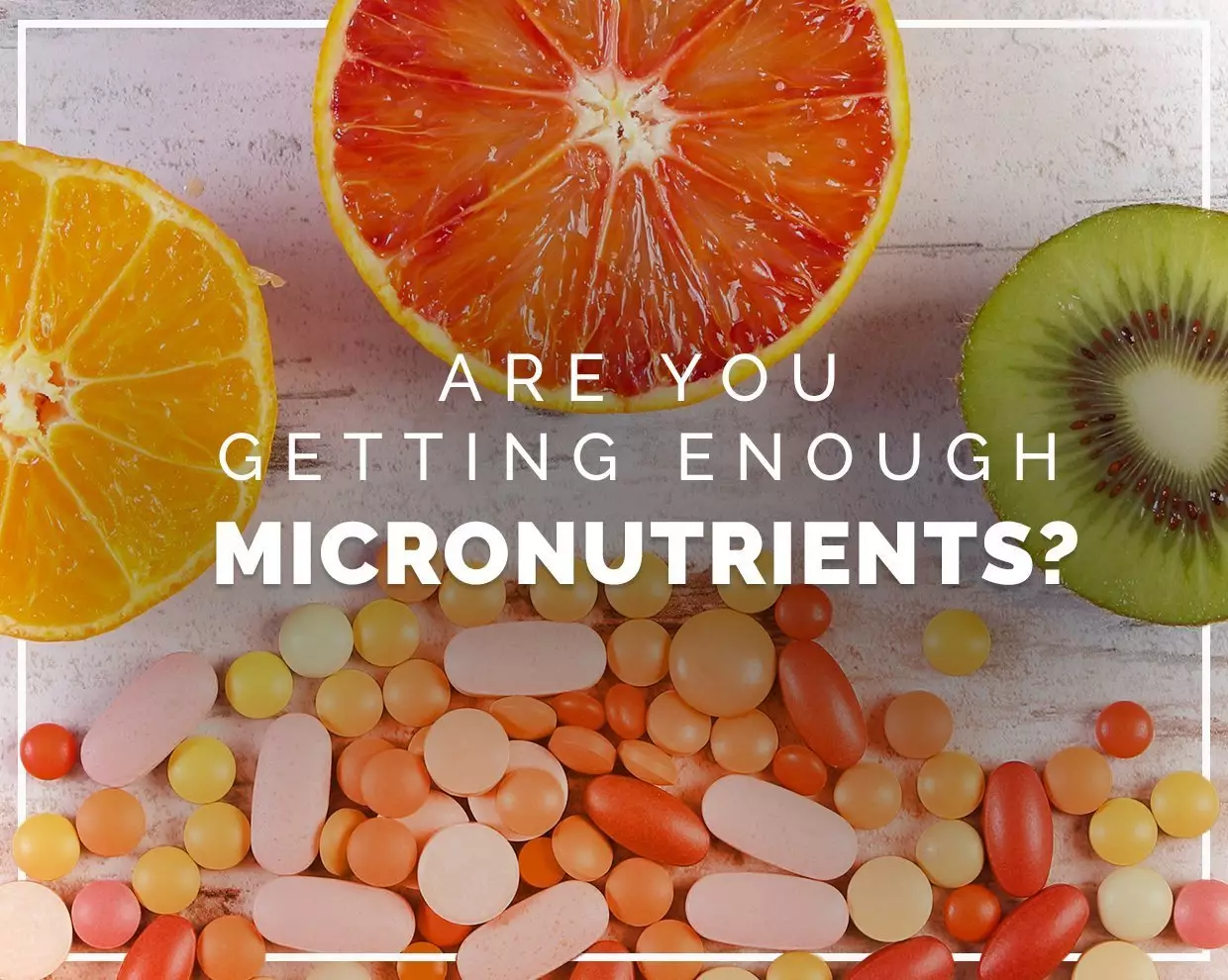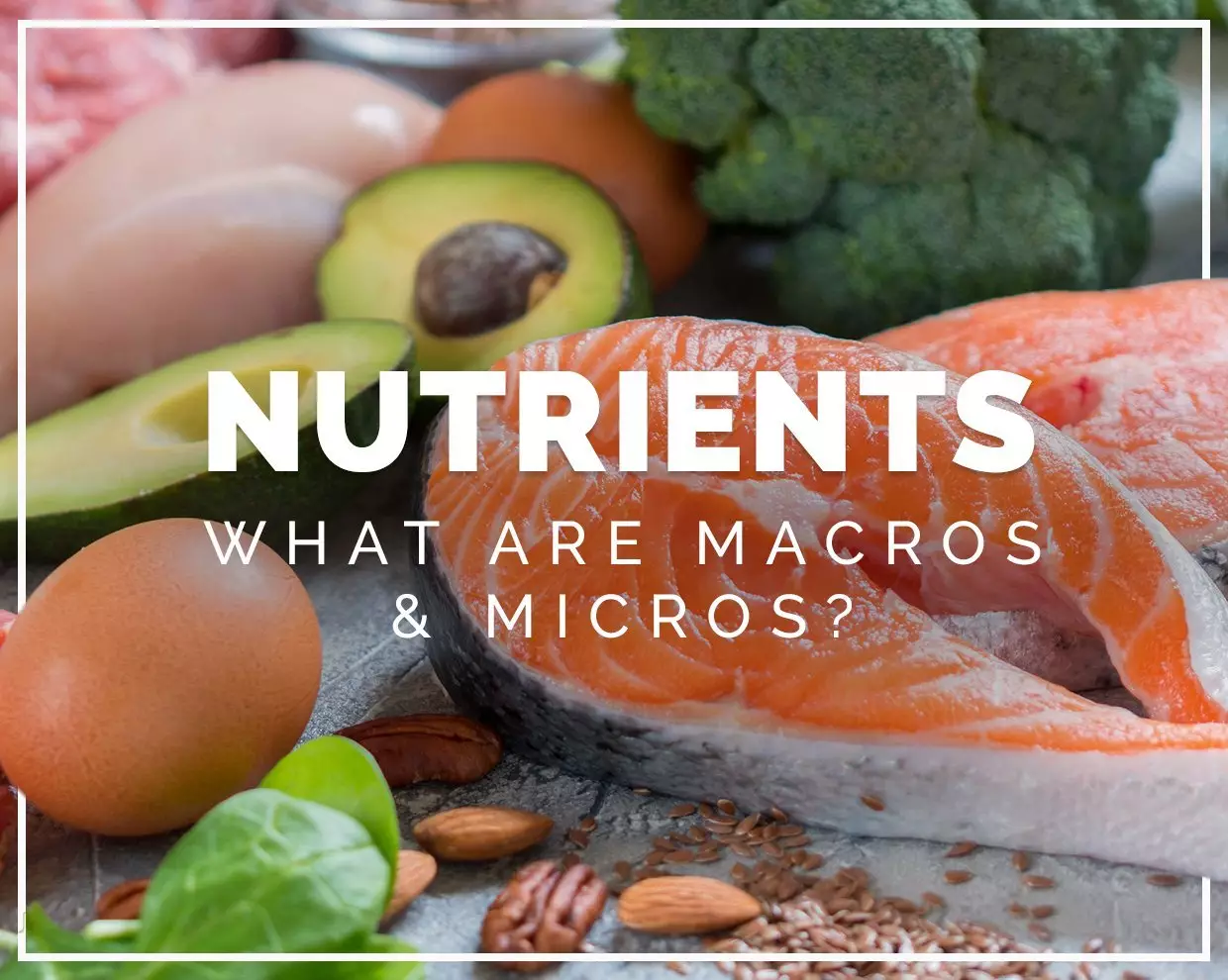Micronutrient deficiencies affect more than 2 billion people globally(1). Micronutrients are needed to maintain brain function, for a healthy nervous system, to regulate immunity, maintain blood circulation and for healthy bones and skin. In essence, you need micronutrients to stay alive. Micros include vitamins and minerals which are largely essential nutrients, meaning they can not be made inside the body. This means that micronutrients need to come from your diet or high-quality supplementation.
Micronutrients are crucial to every process in your body, even the way you convert your macronutrients into energy. (We wrote more about macronutrients in an earlier blog). Some of the micronutrients involved in digestion and assimilation of your food include magnesium, calcium, Vitamins A, B, C, and K. Some of the micronutrients involved in immune function include Vitamin B6, Vitamin C, Vitamin E, magnesium and zinc. (If you would like to know more on this we have written more about immune function here).
Getting your micronutrient levels tested
You can find out whether you are getting enough micronutrients through lab testing. We provide testing for antioxidants, vitamins and minerals so you can make sure you are meeting your functional need for the full range of micronutrients, including all essential vitamins and minerals.
Lab testing recognises the bio-individuality of your metabolic pathways and the workings of your own unique gut microbiome. We all assimilate nutrients differently, and testing is the best way to fine tune your micronutrients. Once you have a precise understanding of your unique micronutrient requirements you can introduce the right supplements, if necessary, to make sure you get everything you need for peak performance.
Nutritive quality
The quality of your macro and micronutrients is everything. Wherever possible we opt for natural, food-based sources for our supplements. Nutrients are more bioavailable when they come in their natural form, making them easier to absorb and assimilate in your body.
Vitamins: A, B, C, D, E and K
Vitamin A, Vitamin D, E and K are all fat-soluble vitamins and are best q10nsumed with a good source of healthy fats to aid absorption. The water-soluble vitamins include ascorbic acid (a.k.a. Vitamin C), and the Vitamin B-Complex which includes thiamine, riboflavin, niacin, biotin and folate, all of which are needed for cell metabolism and a range of internal processes. A deficiency in any of these vitamins can lead to serious health issues.
Minerals: Macrominerals and trace minerals
Minerals are part of your micronutrients. These are divided ‘macrominerals’ such as sodium, calcium, potassium and magnesium which you need in larger amounts; and ‘trace minerals’ like iron, zinc, copper, boron and iodine which are required in much smaller amounts.
Antioxidants and phytochemicals
Antioxidants and phytochemicals are beneficial to your immune function, energy levels and long term health. Cruciferous vegetables, beetroots and berries are particularly high in antioxidants, and help to prevent oxidative damage in your cells. There are some great supplements available for when your diet doesn’t include a regular dose of antioxidants and other beneficial phytonutrients. Sulforaphane, H2 are all great antioxidants (you can read more about the importance of antioxidants on our blog).
Would you like to find out whether you are getting enough micronutrients? We provide testing for antioxidants, vitamins and minerals so you can make sure you are meeting your functional need for the full range of micronutrients, including all essential vitamins and minerals. Get in touch on our health coaching page if you would like to find out more.
1. Magnitude, causes and consequences of micronutrient malnutrition

 NZ Store
NZ Store  UK Store
UK Store AU Store
AU Store EU Store
EU Store









